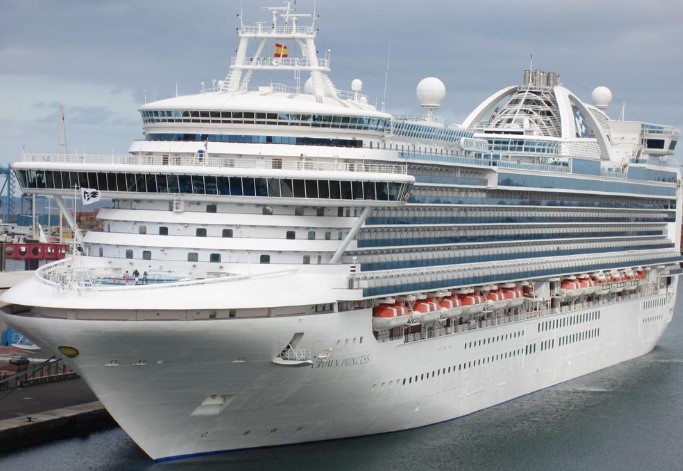In November at the U.N. Climate Change Conference, or COP26, influential leaders in travel and tourism signed the Glasgow Declaration on Climate Action in Tourism, a commitment to cut emissions in half by 2030 (and reach net zero by 2050). It’s a big deal involving some big names (including VisitScotland, Norway, and Skyscanner). Intrepid Travel’s cofounder and chairman Darrell Wade—who participated in a recent AFAR Live conversation devoted to sustainability—told the New York Times: “It’s the first time I’ve seen real concrete commitments from industry and governments.”
So what are those commitments? How will the industry show up at this crucial time? We posed follow-up questions to our AFAR Live panelists and their partner organizations, all thought leaders, to explore what it will take to move from idea to action.
- Darrell Wade, cofounder and chairman of Intrepid Travel; vice chairman at World Travel and Tourism Council overseeing all of its sustainability efforts
- Gavin Landry, the EVP of the Americas for VisitBritain, committed to responsible travel to the United Kingdom
- Patrick O’Meara, interim CEO of the Sustainable Hospitality Alliance
- Denise Naguib, VP of Sustainability and Supplier Diversity, Marriott International (featured in the AFAR Live panel)
These interviews have been edited and condensed for clarity.
In the aftermath of the Glasgow Declaration, how will your organization respond?
Darrell Wade: For Intrepid, the Glasgow Declaration is seriously important. For too long our industry has not been taking its responsibility seriously enough. As an industry, travel and tourism accounts for more than 8 percent of global emissions. Sure, we talk and say fine words, but what is actually needed is solid commitments and actions that can be verified through measurement. The Glasgow Declaration provides such a platform. Specifically, Intrepid will help our industry colleagues understand what’s involved and how to enact carbon reduction plans. We’ve got a lot of experience and expertise in this space.
Gavin Landry: Environmental policy is a key priority for the U.K. government, as outlined in its Green Industrial Revolution 10-point plan and the U.K.’s targets to reach Net Zero carbon emissions by 2050. Hosting the recent COP26 in Glasgow provided an opportunity to reaffirm the U.K.’s commitments to climate action on the global stage.
Amid the global challenges of climate change and the COVID-19 pandemic, VisitBritain has set out its priorities to aid the recovery of both domestic and international tourism and business events, including rebuilding a more resilient, sustainable, and accessible industry. Our recently published Sustainable Tourism discussion paper sets out our approach, including championing regional dispersal and low-carbon transport, sharing resources and best practice with businesses, and working with our trade partners on itineraries that support sustainable and responsible tourism.
Patrick O’Meara: We are launch partners of the Declaration, which means we are helping to set the scene as sector leaders and are leading by example on our own behalf. We are encouraging our members to sign up to the Glasgow Declaration if it is appropriate for them to do so.
Most importantly, we are building a robust Pathway to Net Positive Hospitality, which we announced in conjunction with the Glasgow Declaration at COP26. This Pathway is intended to be a suite of tools, methodologies, and resources to enable and support them on their journey to net positive, for use by every hotel, no matter what brand, location, size, owner, or state of maturity in its sustainability journey.
It is not intended to be a benchmark and we are not imposing timelines for advancement or completion. We have decided to be courageous here by setting our goal as net positive, not just net zero. Net positive in the sector has yet to be defined, but we are driven by the belief in the inherent good in the sector, based on the good it already does and driven by the ambition that we can be regenerative for people and the planet. The Pathway will be formally launched at ITB, Berlin in March 2022.
Are there concrete things that can be done in the short term?
DW: It’s pretty simple really. If you’re a travel operator of any form, open the Declaration, read it, understand it, and sign it! Then start developing a carbon plan. There are lots of resources available now to help companies in this decarbonization process. It used to be daunting, but it’s much easier now. If you’re a customer, start using your power and asking if suppliers are signatories.
PO: The Declaration requires signatories to have in place concrete plans within one year. The Alliance response is the Pathway to Net Positive. The immediate task, which we have begun, is to define Stage One of the Pathway, i.e., the tools, resources, and enablers for businesses, small and large, who are at the beginning of their journey to sustainability. Stage One of the Pathway will outline the basic frameworks a business should have in place and tasks it can undertake in the short term.
We have launched a new partnership with WTTC, other hospitality businesses and stakeholders, to build the Basics Framework. It will be launched at ITB as Stage One of the Pathway to Net Positive.
GL: Many businesses and organizations are already putting sustainability at the heart of what they do. . . . The recent COP26 Summit in Glasgow provided us with a timely and valuable opportunity to promote Britain’s sustainable tourism offer across international markets, including building our global sustainable tourism content “hub” for visitors with itineraries, activities, and experiences to enjoy a sustainable stay in Britain.
Why is the Glasgow Declaration an important turning point for the travel and tourism industry?
PO: It will have direct and indirect impacts that could be profoundly positive. . . . It is a timely and urgent call to action for the entire sector. It is stewarded by a respected and trusted authority in the UNWTO; it highlights the need for intra- and cross-sector collaboration to achieve meaningful goals; and it offers a timeline, in headline form.
At best it will catalyze action now—to help businesses understand that there are many practical starting points, that they don’t need to do everything at once. That they can make a great start.
DW: There has never been an industry-wide attempt to reduce emissions before, so that in itself is significant. More than that, the Declaration contains a high level of urgency with specific goals not only for 2050, but also 2030. This is developed in line with science-based targets and the aspirations of the Paris Agreement, to keep the world within 1.5 degrees of warming. At the end of the day, if we fail to achieve this, we probably don’t have a travel industry—our destinations will be so distressed they simply will no longer be attractive. It’s an existential issue for our industry.
>>Next: Travel as a Force for Good






More Stories
The Ultimate Guide to Mount Bromo and Ijen Tour: A Journey into Nature’s Wonders
The Complete Guide to Pantheon Tickets
Journey Through Italy